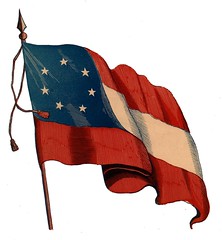Washington City, March 12, 1861.
Hon. Wm. H. Seward, Secretary of State of the United States:
 Sir:—The undersigned have been duly accredited by the government of the Confederate States of America as Commissioners to the government of the United States, and in pursuance of their instructions have now the honor to acquaint you with that fact, and to make known, through you, to the President of the United States, the objects of their presence in this Capital.
Sir:—The undersigned have been duly accredited by the government of the Confederate States of America as Commissioners to the government of the United States, and in pursuance of their instructions have now the honor to acquaint you with that fact, and to make known, through you, to the President of the United States, the objects of their presence in this Capital.
Seven States of the late federal Union having, in the exercise of the inherent right of every free people to change or reform their political institutions, and through conventions of their people, withdrawn from the United States and reassumed the attributes of sovereign power delegated to it, have formed a government of their own. The Confederate States constitute an independent nation, de facto and de jure, and possess a government perfect in all its parts and endowed with all the means of self-support.
With a view to a speedy adjustment of all questions growing out of this political separation, upon such terms of amity and good will as the respective interests, geographical contiguity, and future welfare of the two nations may render necessary, the undersigned are instructed to make to the government of the United States overtures for the opening of negotiations, assuring the Government of the United States that the President, Congress, and people of the Confederate States earnestly desire a peaceful solution of these great questions; that it is neither their interest nor their wish to make any demand which is not founded in strictest justice, nor do any act to injure their late confederates.
The undersigned have now the honor in obedience to the instructions of their government, to request you to appoint as early a day as possible, in order that they may present to the President of the United States the credentials which they bear and the objects of the mission with which they are charged.
We are, very respectfully,
Your obedient servants,
John Forsyth, Martin J. Crawford